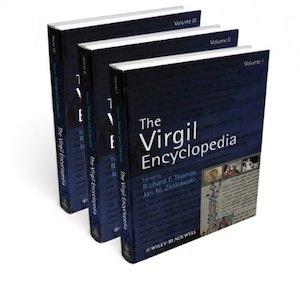Richard F. Thomas
2017. Why Bob Dylan Matters. New York : HarperCollins. Publisher's Version
Classical Traditions and Receptions (Mahindra Humanities Center Seminar)
Classics and Contemporary Critical Issues (GSAS Workshop, 2018–19)
A Festschrift for Richard Thomas!
Civilizations of Ancient Greece and Rome (Mahindra Humanities Center Seminar)
. 2012. “Thoughts on the Virgilian hexameter.” Multi nominis grammaticus. Festchrift for Alan J. Nussbaum, , 306–314. Ann Arbor: Beech Stave Press.
. 2011. “Epigram and Propertian Elegy’s Epigram Riffs: Radical Poet/Radical Critics.” Latin Elegy and Hellenistic Epigram: A Tale of Two Genres at Rome, , 67–85. Newcastle upon Tyne: Cambridge Scholars Publishing.
. 2012. “The Streets of Rome: The Classical Dylan.” Reception and the Classics: An Interdisciplinary Approach to the Classical Tradition, , 134–159. Cambridge; New York: Cambridge University Press.
. 2001. Virgil and the Augustan Reception. Cambridge: Cambridge University Press. Publisher's Version Abstract
2011. Horace: Odes I V and Carmen Saeculare. Cambridge: Cambridge University Press. Publisher's Version Abstract




 Congratulations to Professors Richard Thomas and Jan Ziolkowski, editors of the new publication
Congratulations to Professors Richard Thomas and Jan Ziolkowski, editors of the new publication